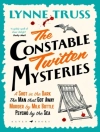In ‘The Adventures of Max Carrados, ‘ Ernest Bramah presents a captivating collection of detective stories centered around the blind sleuth, Max Carrados. The narrative unfolds through a series of meticulously crafted mysteries that challenge the conventions of the genre. Bramah’s prose is notable for its wit and clarity, employing an engaging first-person perspective that accentuates Carrados’s unique abilities and perceptive insights. Set in the early 20th century, the stories reflect the intersection of traditional detective fiction and emerging modernist themes, as Bramah explores the notion of perception and knowledge beyond the realm of sight. Ernest Bramah, a distinguished figure in early 20th-century literature, was deeply influenced by his experiences and observations of the society around him. Born in 1868, Bramah began his career in journalism, which honed his narrative skills and understanding of human nature—essential elements woven into Carrados’s investigations. Furthermore, his interest in eastern philosophy and culture often informed his inventive storytelling, revealing a multidimensional understanding of both the ordinary and extraordinary aspects of life. Readers interested in unconventional detective fiction will find ‘The Adventures of Max Carrados’ a refreshing exploration of mystery literature. Bramah’s clever plots and the intriguing character of Carrados invite readers to question not only the nature of sight but also the depths of human intuition. This book is a must-read for both aficionados of the genre and newcomers looking for a thought-provoking literary experience.
About the author
Ernest Bramah, born Ernest Brammah Smith on 20 March 1868, was an English author known for his sly and innovative literary contributions, especially in the detective and science fiction genres. Lesser-known than his contemporaries, such as Sir Arthur Conan Doyle, Bramah’s work nonetheless offers a significant contribution to early 20th-century literature. His creation, Max Carrados, a blind detective, gained considerable popularity at the time through the collection ‘The Adventures of Max Carrados’ (1914), which showcased the character’s extraordinary abilities to solve mysteries through heightened other senses — a concept well ahead of its time, and indicative of Bramah’s inventive approach to the genre. Bramah’s Carrados tales often highlight social issues of the era, flavored with a wry humor. Not limited to detective stories, Bramah’s diverse body of work also includes ‘The Wallet of Kai Lung’ (1900), which introduced another of his famous characters, the itinerant storyteller Kai Lung. Bramah’s literary style is marked by a distinctive blend of wit, narrative finesse, and a penchant for the out-of-the-ordinary, securing his place in the annals of classic British literature. Despite fluctuating levels of contemporary fame, his contribution has endured, influencing various authors and remaining a treasured part of early detective fiction. Bramah passed away on 27 June 1942, leaving behind a legacy of creativity and insight through his eclectic and enduring works.












